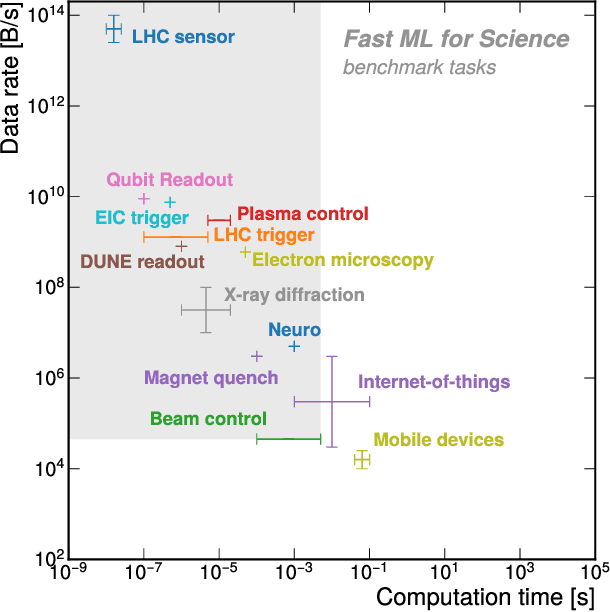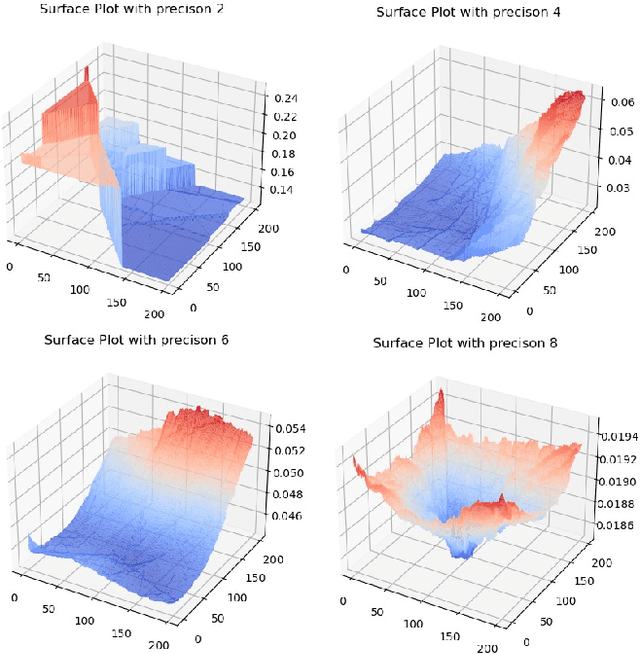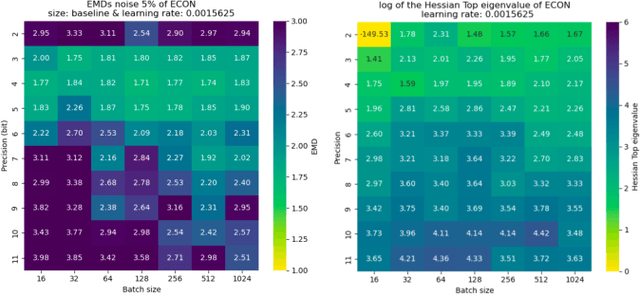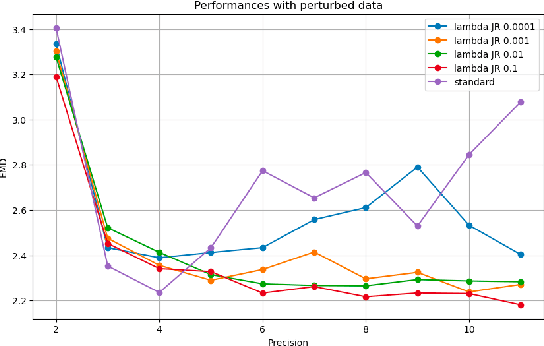Melissa Quinnan
UC San Diego
Building Machine Learning Challenges for Anomaly Detection in Science
Mar 03, 2025



Abstract:Scientific discoveries are often made by finding a pattern or object that was not predicted by the known rules of science. Oftentimes, these anomalous events or objects that do not conform to the norms are an indication that the rules of science governing the data are incomplete, and something new needs to be present to explain these unexpected outliers. The challenge of finding anomalies can be confounding since it requires codifying a complete knowledge of the known scientific behaviors and then projecting these known behaviors on the data to look for deviations. When utilizing machine learning, this presents a particular challenge since we require that the model not only understands scientific data perfectly but also recognizes when the data is inconsistent and out of the scope of its trained behavior. In this paper, we present three datasets aimed at developing machine learning-based anomaly detection for disparate scientific domains covering astrophysics, genomics, and polar science. We present the different datasets along with a scheme to make machine learning challenges around the three datasets findable, accessible, interoperable, and reusable (FAIR). Furthermore, we present an approach that generalizes to future machine learning challenges, enabling the possibility of large, more compute-intensive challenges that can ultimately lead to scientific discovery.
Reconstruction of boosted and resolved multi-Higgs-boson events with symmetry-preserving attention networks
Dec 05, 2024



Abstract:The production of multiple Higgs bosons at the CERN LHC provides a direct way to measure the trilinear and quartic Higgs self-interaction strengths as well as potential access to beyond the standard model effects that can enhance production at large transverse momentum $p_{\mathrm{T}}$. The largest event fraction arises from the fully hadronic final state in which every Higgs boson decays to a bottom quark-antiquark pair ($b\bar{b}$). This introduces a combinatorial challenge known as the \emph{jet assignment problem}: assigning jets to sets representing Higgs boson candidates. Symmetry-preserving attention networks (SPA-Nets) have been been developed to address this challenge. However, the complexity of jet assignment increases when simultaneously considering both $H\rightarrow b\bar{b}$ reconstruction possibilities, i.e., two "resolved" small-radius jets each containing a shower initiated by a $b$-quark or one "boosted" large-radius jet containing a merged shower initiated by a $b\bar{b}$ pair. The latter improves the reconstruction efficiency at high $p_{\mathrm{T}}$. In this work, we introduce a generalization to the SPA-Net approach to simultaneously consider both boosted and resolved reconstruction possibilities and unambiguously interpret an event as "fully resolved'', "fully boosted", or in between. We report the performance of baseline methods, the original SPA-Net approach, and our generalized version on nonresonant $HH$ and $HHH$ production at the LHC. Considering both boosted and resolved topologies, our SPA-Net approach increases the Higgs boson reconstruction purity by 57--62\% and the efficiency by 23--38\% compared to the baseline method depending on the final state.
Reliable edge machine learning hardware for scientific applications
Jun 27, 2024



Abstract:Extreme data rate scientific experiments create massive amounts of data that require efficient ML edge processing. This leads to unique validation challenges for VLSI implementations of ML algorithms: enabling bit-accurate functional simulations for performance validation in experimental software frameworks, verifying those ML models are robust under extreme quantization and pruning, and enabling ultra-fine-grained model inspection for efficient fault tolerance. We discuss approaches to developing and validating reliable algorithms at the scientific edge under such strict latency, resource, power, and area requirements in extreme experimental environments. We study metrics for developing robust algorithms, present preliminary results and mitigation strategies, and conclude with an outlook of these and future directions of research towards the longer-term goal of developing autonomous scientific experimentation methods for accelerated scientific discovery.
FAIR AI Models in High Energy Physics
Dec 21, 2022Abstract:The findable, accessible, interoperable, and reusable (FAIR) data principles have provided a framework for examining, evaluating, and improving how we share data with the aim of facilitating scientific discovery. Efforts have been made to generalize these principles to research software and other digital products. Artificial intelligence (AI) models -- algorithms that have been trained on data rather than explicitly programmed -- are an important target for this because of the ever-increasing pace with which AI is transforming scientific and engineering domains. In this paper, we propose a practical definition of FAIR principles for AI models and create a FAIR AI project template that promotes adherence to these principles. We demonstrate how to implement these principles using a concrete example from experimental high energy physics: a graph neural network for identifying Higgs bosons decaying to bottom quarks. We study the robustness of these FAIR AI models and their portability across hardware architectures and software frameworks, and report new insights on the interpretability of AI predictions by studying the interplay between FAIR datasets and AI models. Enabled by publishing FAIR AI models, these studies pave the way toward reliable and automated AI-driven scientific discovery.
 Add to Chrome
Add to Chrome Add to Firefox
Add to Firefox Add to Edge
Add to Edge